The Bureau of Reclamation has awarded a major construction contract for the Arroyo Canal Fish Screen and Sack Dam Fish Bypass Project. The $93 million award to NW Construction, Inc. marks a significant milestone in the continued effort to improve fish passage required under the 2006 San Joaquin River Restoration Settlement and the 2009 San […]
Recent Stories
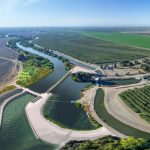
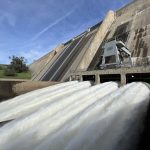
When and Where to Make the River Flow
Central Valley spring-run Chinook salmon evolved to take advantage of the Sierra’s cold, snow-fed, mountain water. Making the journey from the Pacific Ocean upriver much earlier than their fall-run counterparts, spring-run Chinook adults return to their natal streams when flows are high and water temperatures are low. Then, instead of spawning and completing their lifecycle […]
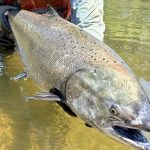
Record-Breaker! Salmon return in droves for 2025
The San Joaquin River Restoration Program set a new record this year for returning adult spring-run Chinook salmon: 448 – the highest number of captured returns recorded since the Program started reintroducing spring-run juveniles in 2014. “The high return numbers clearly demonstrate that spring-run Chinook can survive and return to spawn in the San Joaquin […]
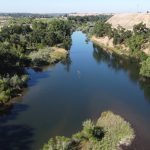
Program updates 2025 Restoration Flow Schedule
San Joaquin River Restoration Program 2025 Restoration Flow Schedule Update Reclamation has finalized the 2025 Restoration Allocation. Based on a forecasted unimpaired runoff to Millerton Lake of 1,346,000 acre-feet, 269,355 acre-feet of water volume are allocated to Restoration Flows. This is a decrease of 2,827 acre-feet from the previous Restoration Allocation. The Restoration Administrator, an […]
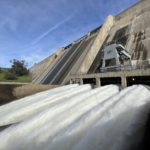
Notes and Slidedeck for January 29 Water Management Goal Technical Feedback Meeting
The SJRRP held an open-to-the-public Water Management Goal Technical Feedback Meeting on Wednesday, January 29, 2025 to coincide with the Mid-Pacific Water Users’ Conference in Reno, Nevada. This meeting was held in-person and virtually. Meeting notes and PowerPoint slides from the meeting are located below. If there are any problems accessing, please reach out to […]

Program staff receive high praise, prestigious awards
Strong leadership and quick-thinking landed two San Joaquin River Restoration Program staff recognition for their Program-related efforts this week at the Bureau of Reclamation Regional Leadership Team awards ceremony. Donald E. Portz, SJRRP Program Manager, received Reclamation’s Superior Service Citation for his SJRRP-related efforts. The award recognized Dr. Portz as, “a steadfast driving force in […]
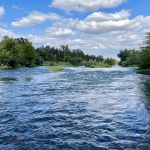
DRAFT CHANNEL CAPACITY REPORT FOR THE 2025 RESTORATION YEAR AVAILABLE FOR REVIEW
The San Joaquin River Restoration Program, through its partnering agency, the California Department of Water Resources, has released the Draft Channel Capacity Report for the 2025 Restoration Year. The primary objective of this report is to provide the Channel Capacity Advisory Group (CCAG) and the public a summary of the prior Restoration Year’s data, methods, […]
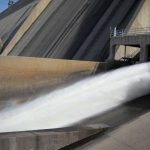
Program to release first ever summer pulse flow for salmon spawning
Starting early morning, Tuesday, September 10, the San Joaquin River Restoration Program (Program) will release a scheduled pulse flow on the San Joaquin River. Friant Dam releases will increase from 450 cubic-feet-per-second (cfs) to 1500 cfs for several hours, then decrease to 1000 cfs overnight and return to normal Friant Dam releases on Wednesday, September […]
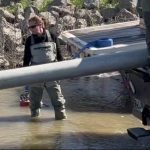
Program releases 200,000 spring-run Chinook salmon to river
Last week, Program field crews released approximately 150,000 juvenile spring-run Chinook salmon to the river, bringing the season total to almost 200,000 juveniles. These fish will outmigrate to the Pacific Ocean before returning to the river in two to three years as adults to spawn. Below is a video of the release.
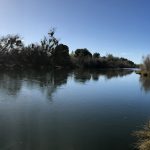
2024 Channel Capacity Report Available
The Program has released its 2024 Channel Capacity Report. Then-existing channel capacities in the Restoration Area (the San Joaquin River between Friant Dam and the confluence of the Merced River) correspond to flows that would not significantly increase flood risk from Restoration Flows. Then-existing channel capacity is reported in an annual comprehensive Channel Capacity Report […]

